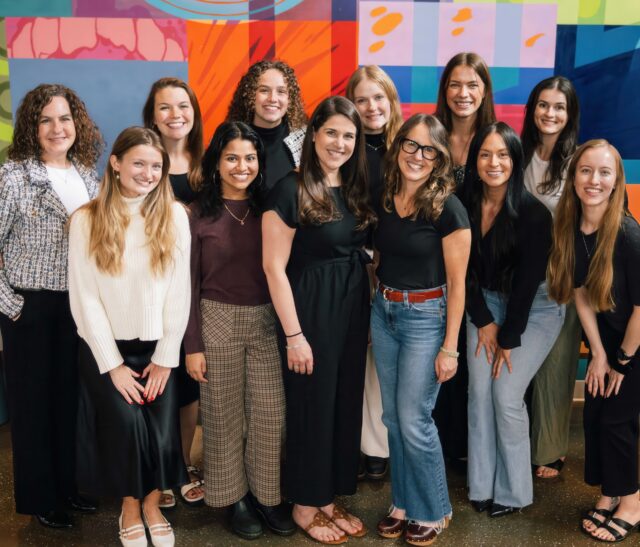Exceptional Minds, Unique Learners
Gifted & Twice Exceptional (2E) Evaluations
Is your child excelling in some areas while struggling in others? This mix of strengths and challenges, or “asynchronous development” is common in twice-exceptional (2E) children. At Minnesota Neuropsychology, our comprehensive evaluations reveal your child’s strengths and neurodiversity to provide you with clarity and actionable insights to help your child thrive.
Understanding Twice Exceptional (2E) Learners
Twice-exceptional (2E) refers to intellectually gifted children who need both enrichment and support in the school setting. These remarkable individuals show extraordinary talents in specific areas while facing unexpected challenges in others (e.g., dyslexia, ADHD, anxiety). Their intellectual giftedness might mask their struggles, or their challenges could hide their exceptional abilities. Some gifted students thrive in the school setting, while others struggle. A comprehensive evaluation can give parents valuable insights into their child’s unique cognitive profile and create a clear path forward for supporting their strengths and learning needs.

Seeking a Neuropsychological Evaluation
At Minnesota Neuropsychology, our comprehensive evaluations examine the whole child—considering cognitive, social, emotional, and behavioral patterns. We recognize the unique profile of 2E learners who typically display quick conceptual understanding and advanced problem-solving alongside specific struggles. Through careful assessment, we can identify common attributes that may indicate 2E.
Attributes of a Twice Exceptional Child
Remember that 2E children are a diverse group, and not every child will display all these characteristics, nor will they display them to the same degree.
- Learning inconsistency: Your child may show incredible talent in certain areas but struggle in others.
- Avoidance of school or homework: Your child may act defiant or throw a temper tantrum when asked to do homework or get ready for school.
- Anxiety or depression: Your child might feel guilty when unable to perform due to an underlying learning difference. This can lead to anxiety or symptoms of depression.
- Intense focus on areas of interest: Your child might show remarkable depth of knowledge and passion for specific topics while appearing disengaged with other subjects.
- Heightened sensitivity: Your child may react strongly to criticism, sensory stimuli, or perceived failure.
I just wanted to pass along a “thank you.” The testing process was great for both my child and myself, and receiving the written assessment results in less than a week was awesome and allowed us to continue pushing on the school to get things rolling on their end.
Thank you so much for this detailed, thorough report. We are grateful for the wealth of information and the thoughtful strategies and recommendations you’ve provided to help support our child as they grow. We are grateful, too, for a wonderful experience on the day of testing. It was a big day for our family, but it was so clear that we had entrusted him to such capable and compassionate hands!
Both myself and my husband were so impressed with the thorough assessment, organization, and overall experience we had with MNNP. We feel informed and empowered. We had a meeting with the school today and I was excited to see in the draft that many of the recommendations from Dr. Adams were already listed.

Diagnostic Care from a Compassionate Team
We provide evaluations in the Minneapolis/St. Paul area through comprehensive, data-driven evaluations in two welcoming settings. Whether you visit our Cathedral Hill or Wayzata location, you can expect a caring and compassionate team. Our neuropsychologists work hand-in-hand with our team of assessment specialists (psychometrists) to ensure that your child has a positive and engaging evaluation experience. Our mission is to provide a comprehensive diagnostic evaluation that empowers children of all ages to understand their brain and go forward confidently.
Frequently Asked Questions
Below are frequently asked questions specifically about ADHD. For information about our comprehensive evaluation process and additional questions regarding assessments for school-age children and teens, please visit the FAQ section on our Evaluations for Children & Adolescents webpage.
What does twice exceptional (2E) mean?
Twice-exceptional (2E) refers to individuals who are both intellectually gifted and have a challenge that requires support in school. These children possess exceptional cognitive abilities or talents while simultaneously experiencing conditions like ADHD, dyslexia, autism spectrum disorder, or other learning or emotional difficulties. Their unique profile creates an asynchronous development pattern where they may excel dramatically in certain areas while struggling significantly in others. This duality often makes identification challenging, as strengths can mask weaknesses or disabilities can obscure gifts, leading to misdiagnosis or inadequate educational support. A comprehensive neuropsychological evaluation can help parents understand their child’s unique cognitive profile and chart an effective path forward that supports first their exceptional strengths, and then any areas of challenge.
What is “asynchronous development”?
Asynchronous development refers to the uneven pattern of growth that many gifted and twice-exceptional children experience, where different areas of development progress at dramatically different rates. Your child might demonstrate advanced reasoning skills in one subject while struggling with age-appropriate tasks in another. For example, a 10-year-old might solve complex mathematical concepts like algebra but struggle with basic arithmetic facts or handwriting. This creates a learning profile where exceptional abilities coexist with unexpected challenges.
Understanding asynchronous development helps parents and educators recognize that these disparities are normal for 2E learners. By evaluating the whole child’s profile, we can identify which areas need additional support and intervention while also celebrating and nurturing their exceptional strengths. This comprehensive understanding ensures that children receive appropriate accommodations for their challenges without limiting their access to advanced learning opportunities that match their intellectual abilities.
How do perfectionism and emotional intensity affect twice exceptional students?
Twice exceptional students often experience heightened perfectionism and emotional intensity that can significantly impact their learning and well-being. Their advanced cognitive abilities allow them to set extremely high standards for themselves, but when learning differences create obstacles, they may become overwhelmed by the gap between their expectations and performance. This perfectionism can manifest as task avoidance, meltdowns over minor mistakes, or refusing to attempt challenging work for fear of failure. The emotional intensity common in gifted learners—combined with the frustration of hidden learning challenges—can create a perfect storm of anxiety, self-doubt, and behavioral difficulties. Recognizing these patterns helps parents understand that emotional outbursts or refusal to do homework may stem from internal pressure rather than defiance.
What is a gifted evaluation, and is it different from a 2E evaluation?
A gifted evaluation typically identifies intellectual giftedness through cognitive testing and may be used for gifted program placement. A twice-exceptional (2E) evaluation is more comprehensive, examining both strengths and challenges to create a complete picture of your child’s learning profile. While a standard gifted evaluation might identify high cognitive ability, it may miss underlying learning differences or executive function challenges that could impact your child’s performance. Our 2E evaluations at Minnesota Neuropsychology look beyond IQ to examine attention, executive functioning, and potential learning disabilities. This comprehensive approach ensures we identify not only intellectual giftedness but also any barriers that might prevent your child from reaching their full potential, which allows the development of targeted support strategies.
How common is the co-occurrence of giftedness and dyslexia?
The co-occurrence of giftedness and dyslexia is more common than many realize. Bright children with dyslexia often develop sophisticated compensation strategies that can mask their reading difficulties for years—a phenomenon sometimes called “stealth dyslexia.” These students may excel in verbal discussions and demonstrate advanced problem-solving skills while quietly struggling with reading fluency, spelling, or written expression. The intellectual giftedness can camouflage the dyslexia, while the dyslexia may prevent the full expression of their abilities. This combination can lead to frustration, underachievement, and misunderstanding from teachers and parents who see the child’s potential but can’t understand why they’re not performing consistently. A comprehensive 2E evaluation can identify the giftedness and co-occurring conditions like dyslexia, providing clarity for families and schools.
Learn more about this hidden challenge in our related article, Stealth Dyslexia: The Hidden Struggle Behind Brilliant Minds.
What are your policies regarding insurance?
To ensure we can provide thorough evaluations, we have chosen to be an out-of-network provider and do not accept insurance. Unfortunately, insurance companies impose strict limitations on how much time can be allocated to different parts of an evaluation. For complete details about potential reimbursement opportunities, please visit our Fees & Payments web page.
Related Articles
Request an Evaluation
Our comprehensive gifted and twice exceptional evaluations highlight your child’s unique strengths and areas needing support. Our team provides clear insights and next steps for neurodiverse learners, including gifted and 2E children.





